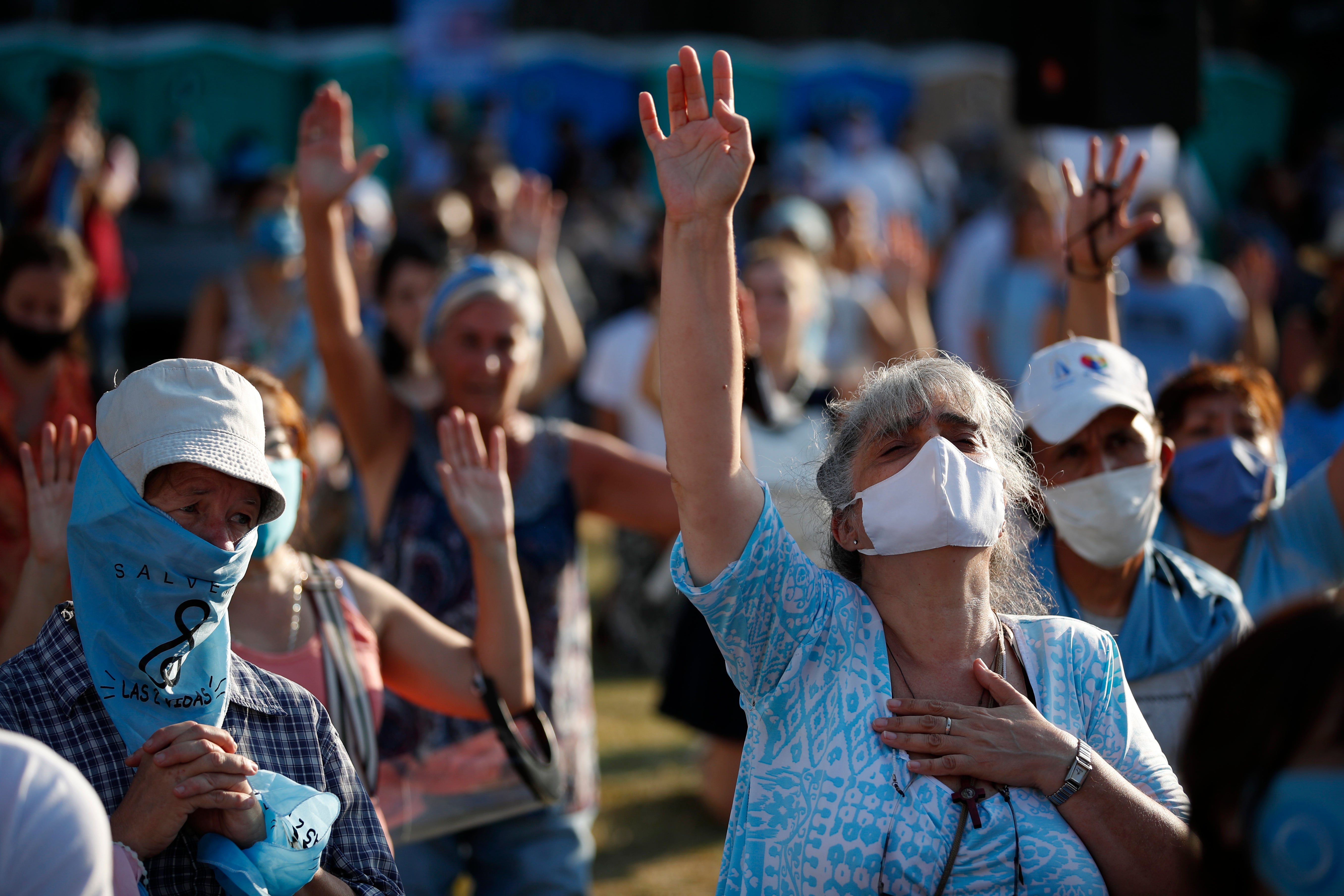Argentine Senate weighs fate of abortion in pope's homeland
Argentine senators have debated for hour after hour over legalizing abortion, wrangling that has spilled into Wednesday before a vote later in the day that could mark the culmination of a decades-long fight by women’s groups in Pope Francis' homeland

Argentine senators debated for hour after hour over legalizing abortion wrangling into the early hours of Wednesday before a vote that could mark the culmination of a decades-long fight by women's groups in Pope Francis' homeland and have repercussions across a continent where the procedure is largely illegal.
The bill, which would legalize elective abortion in the first 14 weeks of a pregnancy, was already approved by Argentina’s Chamber of Deputies and had the support of President Alberto Fernández, meaning the Senate vote would be its final hurdle.
If the measure should pass, Argentina would be the largest Latin American country to legalize abortion and the vote was being closely watched. With the exceptions of Uruguay, Cuba, Mexico City, Mexico's Oaxaca state, the Antilles and French Guiana, abortion remains largely illegal across the region.
Argentina currently penalizes women and those who help them abort. The only exceptions are cases involving rape or a risk to the health of the mother, and activists complain even these exceptions are not respected in some provinces.
Just hours before the Senate session began Tuesday, the pope weighed in, tweeting: "The Son of God was born an outcast, in order to tell us that every outcast is a child of God. He came into the world as each child comes into the world, weak and vulnerable, so that we can learn to accept our weaknesses with tender love.”
A previous abortion bill was voted down by Argentine lawmakers in 2018, but this time it was being backed by the center-left government. The outcome of the latest vote, however, was still considered uncertain. That was partly due to the fact that the political parties, including the governing Peronist movement, gave their legislators freedom to vote as they chose. Two of the 72 senators were absent, and 43 of the remaining 70 senators were men.
"The vote is even,” Sen. Nancy González, a backer of the legislation, said before the debate. “This is vote by vote. We are still working on the undecided.”
Outside the Senate, pro- and anti-abortion activists gathered, with the bill's supporters wearing the color green that represents their pro-abortion movement.
Argentina’s feminist movement has been demanding legal abortion for more than 30 years and activists say the bill's approval could mark a watershed in Latin America, where the Roman Catholic Church's influence has long dominated.
“Our country is a country of many contradictions,” said Ester Albarello, a psychiatrist with a network of health professionals that supports the bill, who was among the demonstrators outside the congressional building. “It is the only one in the world that brought members of its genocidal military dictatorship to justice with all the guarantees. But we still don’t have legal abortion. Why? Because the church is together with the state.”
Also outside the legislature, a group that calls its members “defenders of the two lives” set up an altar with a crucifix under a blue tent. Dressed in a white smock and light-blue face mask, teacher Adriana Broni said that even if the abortion law won approval, “I will not teach that it is a right to kill, murder, a baby who has no voice.”
The legislative debate was being presided over by Vice President Cristina Fernández, who was president in 2007-2015 and would vote only if there was a tie among the senators.
Supporters said the bill seeks to eradicate the clandestine abortions that have caused more than 3,000 deaths in the country since 1983, according to figures from authorities.
In addition to allowing abortion within the first 14 weeks of pregnancy, the legislation also would establish that even after that period, a pregnancy could be legally terminated if it was the result of rape or if the person’s life or integral health was in danger.
It would allow conscientious refusal to participate in an abortion for health professionals and private medical institutions at which all doctors are against the procedure. But they would be required to refer the woman to another medical center. Conscientious objection also could not be claimed if a pregnant woman’s life or health was in danger.
____
AP journalist Yesica Brumec contributed to this report.
Bookmark popover
Removed from bookmarks